| Description |
- Bridges Thunderbolt-enabled devices to DisplayPort displays.
- Supports various resolutions.
- Offers plug-and-play functionality.
- Compact design for convenience.
|
- Parallel Connectivity: Links printers, scanners to computers.
- Durable Construction: Long-lasting materials.
- Standard Connectors: DB25 connectors.
- High-Speed Transfer: Fast data exchange.
- Various Lengths: Fits different setups.
- Plug-and-Play: Easy installation.
- Compatibility: Works with many devices.
|
- Connects devices with DVI output to devices with VGA input
- Converts digital DVI signals to analog VGA signals
- Allows older VGA-compatible monitors or projectors to be used with newer DVI-equipped computers or devices
- Typically used for displaying video or graphics from a computer to a monitor, projector, or TV
- Provides a simple and cost-effective solution for compatibility between different types of video connections
|
- Signal Conversion: Micro HDMI to HDMI
- Compatibility: Micro HDMI Devices to HDMI Displays
- Resolution Support: SD, HD, 4K
- Audio and Video Transmission
- Compact and Lightweight Design
- Plug-and-Play Functionality
- Versatile Usage.
|
- Data Transmission: Supports speeds up to 1 Gbps, ideal for most home and small business networks.
- Twisted Pair Design: Minimizes crosstalk and interference for reliable data transfer.
- Compatibility: Backward compatible with Cat5 while offering improved performance.
- Flexible and Durable: Easy to install and suitable for various networking setups.
- Applications: Connects computers, printers, routers, and other devices in LANs.
- Color Coding: Available in various colors for easy organization in networking installations.
- Affordability: Provides reliable performance at a reasonable price point.
- Standards Compliance: Meets TIA/EIA specifications for Cat5e cabling standards.
|
- Connects devices with DVI output to devices with VGA input
- Converts digital DVI signals to analog VGA signals
- Allows older VGA-compatible monitors or projectors to be used with newer DVI-equipped computers or devices
- Typically used for displaying video or graphics from a computer to a monitor, projector, or TV
- Provides a simple and cost-effective solution for compatibility between different types of video connections
|
| Content | A Thunderbolt-to-DisplayPort adapter is a device used to connect a Thunderbolt-enabled device, such as a computer or laptop, to a DisplayPort-enabled display or monitor.
Here's a brief description of its functionality and features:
- Connectivity: The adapter allows you to bridge the gap between devices with Thunderbolt ports and displays equipped with DisplayPort connectors.
- Compatibility: It is designed to work with devices that have Thunderbolt ports, including MacBooks, PCs, and laptops, and displays that support DisplayPort connections.
- Display Support: It enables you to transmit video and audio signals from your Thunderbolt device to the DisplayPort display, allowing you to mirror or extend your screen.
- Resolution Support: Depending on the specific adapter and the capabilities of your devices, it may support various resolutions, including Full HD (1080p), Quad HD (1440p), and even Ultra HD (4K) resolutions.
- Plug-and-Play: In most cases, these adapters are plug-and-play devices, requiring no additional software installation. Simply connect the adapter to your Thunderbolt port and the DisplayPort cable to your display, and your devices should recognize each other.
- Compact Design: They typically have a compact and portable design, making them convenient for travel or use in different work environments.
- Bi-Directional Support: Some adapters may support bi-directional functionality, allowing you to connect a Thunderbolt-enabled display to a device with a DisplayPort output.
Overall, Thunderbolt-to-DisplayPort adapters provide a simple and effective solution for connecting Thunderbolt devices to DisplayPort displays, ensuring compatibility and seamless transmission of audio and video signals. |
Parallel printer cables are essential accessories for connecting printers, scanners, and other parallel devices to computers and other compatible devices. These cables facilitate data transfer between devices, allowing for efficient printing and document scanning.
Key Features:
- Parallel Connectivity: Designed specifically for parallel ports, these cables provide reliable connections between printers, scanners, and computers.
- Durable Construction: Made with high-quality materials to ensure durability and longevity, even with frequent use.
- Standardized Connectors: Equipped with standard DB25 connectors on both ends for compatibility with various devices.
- Bi-Directional Communication: Supports bi-directional communication between the connected devices, enabling efficient data transfer.
- High-Speed Data Transfer: Capable of transferring data at high speeds, ensuring fast printing and scanning processes.
- Shielded Design: Shielded construction minimizes electromagnetic interference, ensuring stable connections and data integrity.
- Various Lengths: Available in various lengths to accommodate different setup configurations and distances between devices.
- Plug-and-Play: Simple installation process; just connect the cable to the parallel ports on the devices, and they're ready to use.
- Compatibility: Compatible with a wide range of printers, scanners, and computers equipped with parallel ports.
Typical Use Cases:
- Connecting Printers: Used to connect dot matrix printers, laser printers, and other parallel printers to computers.
- Scanning Documents: Connects scanners to computers for document scanning and digitalization.
- Legacy Devices: Useful for connecting older devices with parallel ports to modern computers or printers.
- Industrial Applications: Used in industrial environments for connecting printers, barcode scanners, and other devices.
Considerations for Purchase:
- Length: Choose a cable length that suits your setup and the distance between devices.
- Connector Type: Ensure compatibility with the parallel ports on your devices (DB25 connectors are most common).
- Durability: Look for cables with sturdy construction and good shielding to ensure reliability and longevity.
- Compatibility: Verify compatibility with your devices' operating systems and parallel port specifications.
- Bi-Directional Support: If bi-directional communication is required for your devices, ensure that the cable supports this feature.
Parallel printer cables provide a simple and effective solution for connecting printers, scanners, and other parallel devices to computers, facilitating efficient data transfer and reliable operation.
| A DVI to VGA cable serves as a bridge between devices utilizing different video output standards, specifically Digital Visual Interface (DVI) and Video Graphics Array (VGA). DVI is a digital interface commonly found on modern computers, laptops, and other multimedia devices, while VGA is an analog interface that has been prevalent in older monitors, projectors, and displays.
This cable facilitates the connection of a device equipped with a DVI output port to a display or peripheral device featuring a VGA input port. It effectively translates the digital signals outputted by the DVI port into analog signals compatible with VGA input, ensuring seamless compatibility between the two devices.
Typically, the DVI end of the cable plugs into the DVI output port of the source device, such as a computer or DVD player, while the VGA end connects to the VGA input port of the display device, such as a monitor or projector. Once connected, the cable enables the transmission of video signals from the source device to the display device, allowing users to view images, videos, presentations, and other visual content.
This cable is particularly useful in scenarios where users need to connect newer devices with DVI outputs to older displays or projectors that only support VGA input. By providing a straightforward and reliable means of conversion between digital and analog video signals, it eliminates the need for complex adapters or converters, streamlining the setup process and ensuring compatibility without sacrificing video quality.
Furthermore, DVI to VGA cables are often used in various applications, including business presentations, educational settings, home entertainment systems, and professional audiovisual setups. Whether you're connecting a laptop to a classroom projector, a desktop computer to a legacy monitor, or a multimedia player to a TV screen, this cable offers a practical and cost-effective solution for achieving interoperability between different video standards.
In summary, a DVI to VGA cable serves as a versatile and essential tool for connecting devices with disparate video output standards, enabling seamless integration and compatibility in a wide range of multimedia setups and environments. |
Micro HDMI-to-HDMI adapters are connectors used to convert Micro HDMI signals to standard HDMI signals, facilitating the connection between devices with Micro HDMI outputs and displays, monitors, or TVs with HDMI inputs. Here's a description of their features:
- Signal Conversion: Micro HDMI-to-HDMI adapters convert Micro HDMI signals, commonly found on smartphones, tablets, or cameras, to standard HDMI signals, enabling compatibility with HDMI displays, monitors, or TVs.
- Compatibility: These adapters are compatible with devices that have Micro HDMI outputs, including smartphones, tablets, cameras, or camcorders. They can connect to HDMI displays, monitors, or TVs from various manufacturers.
- Resolution Support: Micro HDMI-to-HDMI adapters support various resolutions, including standard definition (SD), high definition (HD), and even some higher resolutions like 4K, depending on the capabilities of the connected devices.
- Audio and Video: These adapters transmit both audio and video signals, allowing users to enjoy high-definition multimedia content on compatible HDMI displays or monitors.
- Construction: Micro HDMI-to-HDMI adapters are typically compact and lightweight, making them easy to carry and use. They may feature durable materials and gold-plated connectors for reliable signal transmission and longevity.
- Plug-and-Play: They are generally plug-and-play devices, requiring no additional drivers or software installation. Users can simply plug one end of the adapter into the Micro HDMI output of their device and the other end into the HDMI input of their display.
- Versatility: Micro HDMI-to-HDMI adapters are versatile and can be used for various applications, including connecting smartphones or tablets to TVs or monitors for streaming videos or presentations, viewing photos or videos from cameras on larger screens, or extending desktop setups to HDMI displays.
Overall, Micro HDMI-to-HDMI adapters offer a convenient and reliable solution for connecting devices with Micro HDMI outputs to HDMI displays or monitors, enabling seamless audio and video transmission for a wide range of applications.
| Cat5e Ethernet cables are twisted pair cables primarily used for networking. Here's a brief description of their features:
- Data Transmission: Cat5e cables are capable of transmitting data at speeds up to 1000 Mbps (1 Gbps) over short distances, making them suitable for most home and small business networks.
- Twisted Pair Design: They feature twisted pairs of copper wires, which helps reduce crosstalk and electromagnetic interference, ensuring reliable data transmission.
- Compatibility: Cat5e cables are backward compatible with older networking standards like Cat5, but they offer improved performance and support higher data transfer rates.
- Flexible and Durable: These cables are flexible and easy to install, suitable for various networking setups. They come in different lengths to accommodate different distances.
- Applications: Cat5e cables are commonly used to connect computers, printers, routers, switches, and other networking devices within a local area network (LAN).
- Color Coding: They typically come in various colors, with the most common being blue, gray, and white. Color coding helps with cable management and organization in networking installations.
- Affordability: Cat5e cables are cost-effective solutions for most Ethernet networking needs. They provide reliable performance at a reasonable price point.
- Standards Compliance: Cat5e cables meet the specifications defined by the Telecommunications Industry Association (TIA) and the Electronic Industries Alliance (EIA) for Cat5e cabling standards.
|
- A DVI to VGA cable serves as a bridge between devices utilizing different video output standards, specifically Digital Visual Interface (DVI) and Video Graphics Array (VGA). DVI is a digital interface commonly found on modern computers, laptops, and other multimedia devices, while VGA is an analog interface that has been prevalent in older monitors, projectors, and displays.This cable facilitates the connection of a device equipped with a DVI output port to a display or peripheral device featuring a VGA input port. It effectively translates the digital signals outputted by the DVI port into analog signals compatible with VGA input, ensuring seamless compatibility between the two devices.Typically, the DVI end of the cable plugs into the DVI output port of the source device, such as a computer or DVD player, while the VGA end connects to the VGA input port of the display device, such as a monitor or projector. Once connected, the cable enables the transmission of video signals from the source device to the display device, allowing users to view images, videos, presentations, and other visual content.
This cable is particularly useful in scenarios where users need to connect newer devices with DVI outputs to older displays or projectors that only support VGA input. By providing a straightforward and reliable means of conversion between digital and analog video signals, it eliminates the need for complex adapters or converters, streamlining the setup process and ensuring compatibility without sacrificing video quality.
Furthermore, DVI to VGA cables are often used in various applications, including business presentations, educational settings, home entertainment systems, and professional audiovisual setups. Whether you're connecting a laptop to a classroom projector, a desktop computer to a legacy monitor, or a multimedia player to a TV screen, this cable offers a practical and cost-effective solution for achieving interoperability between different video standards.
In summary, a DVI to VGA cable serves as a versatile and essential tool for connecting devices with disparate video output standards, enabling seamless integration and compatibility in a wide range of multimedia setups and environments.
|
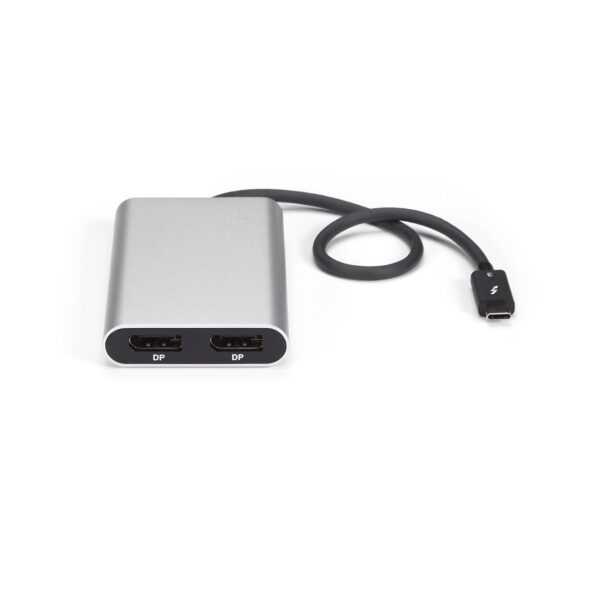
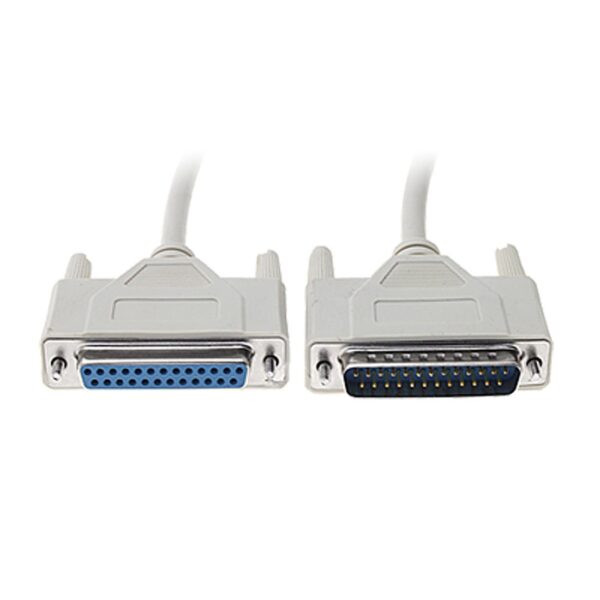
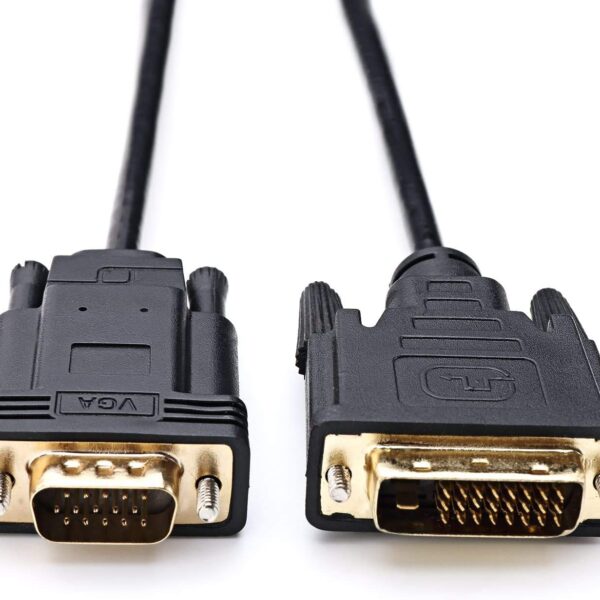
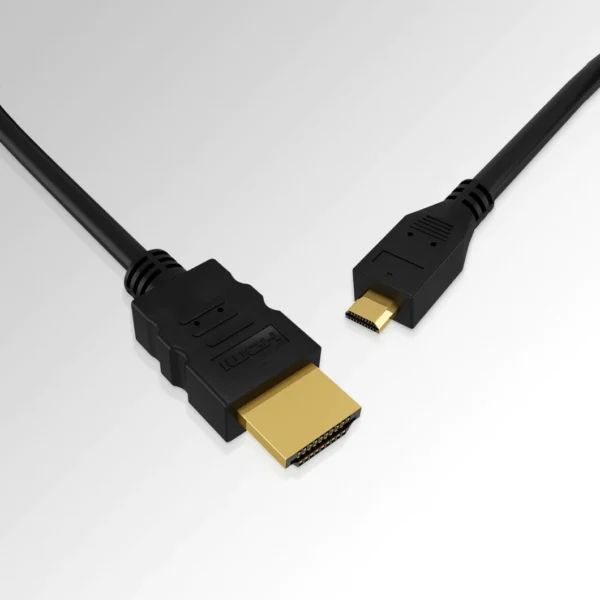
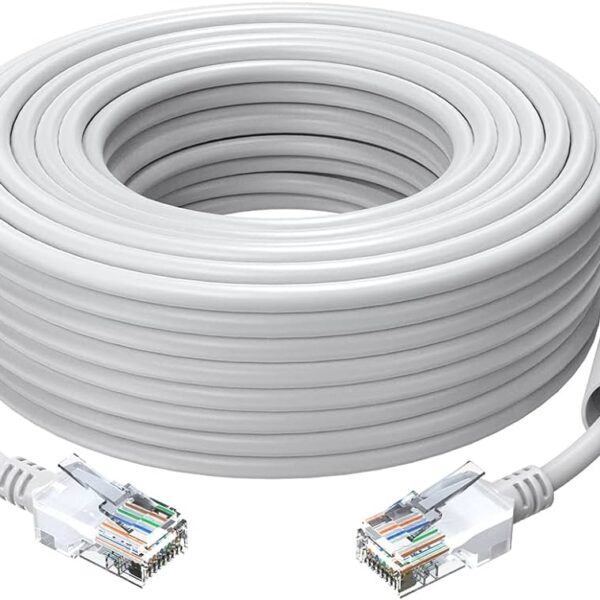
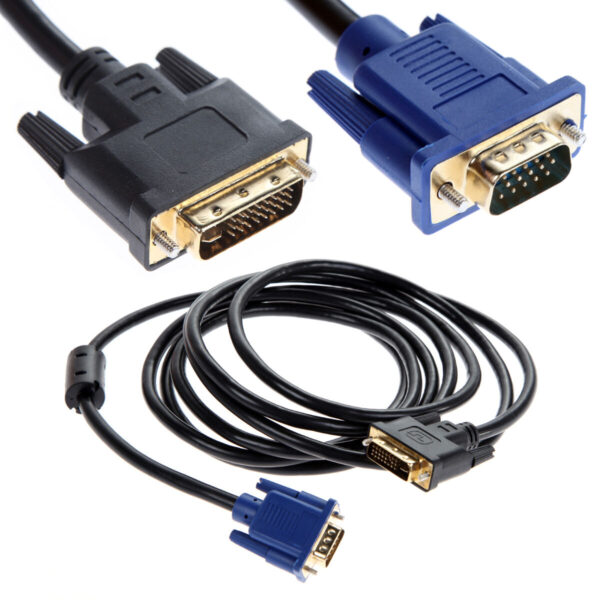















Rating & Review
There are no reviews yet.